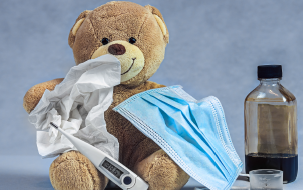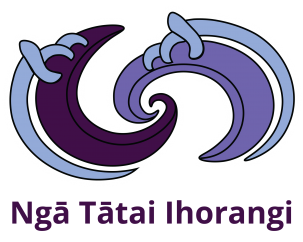-
Patient and Visitor Information
- Access your healthcare information
- Privacy Statement
- Accommodation for Whānau and Family
- At the Hospital
- Going Home
- Non-New Zealand Resident
- Hospital Chaplaincy
- People You May Meet
- Personal Needs
- Visiting Information
- What To Bring
- Your Rights
- Telehealth Appointments
- Telehealth
- Making it easier to keep in touch with patients
- Health Conditions and Treatment
-
Health Resources
- Advance Care Planning
- Alcohol and other drugs
- Aro ki te Hā is a Whānau-led Smokefree Kaupapa for Hapū / Māmā Whānau
- B4School Checks
- Boating Safety
- Bowel Health
- Breast Screening
- Child Health
- Clinical Development
- Dental Health
- Driveway Safety
- Employment Works
- Falls Prevention
- Hepatitis C
- Hand Hygiene
- Hoki ki ngā tūāpapa – Back to Basics
- Influenza and Healthcare Workers
- Immunisation - protecting your whakapapa
- Immunisation Whooping Cough
- Living our Values
- Mana Ake [Mental Health Support for Children]
- Measles
- Meningococcal Disease
- Mental Health
- Northland Health Services Plan
- Renal Health - Recipe Book
- Resource Unit
- Rheumatic Fever
- Safe Sleep and Unexpected Death in Infancy (SUDI) Prevention
- Shared Care - Whānau Tahi
- Sexual Health - Services
- Suicide Resources
- Water Safety
- Whānau Pack
- MyWai
- Sexual Health
-
Healthy Environments
- Alcohol & Liquor Licensing
- Drinking Water Assessment Unit
- Food Safety
- Physical Environments
- Shellfish Safety
- Ship Sanitation and Port Health
- Smokefree Compliance: Environments and Enforcement (Tobacco and Vape)
- Swimming Water Quality
- Early Childhood Education Centres - Health and Safety Assessments
- Solaria (Sunbeds)
- Healthy Lifestyles
- Find a provider
- Organ Donations and Transplants
- Northland DHB Health Needs Assessment
- Community Clinics
- National Public Health Service – Northern Region
What to do if you have a Cold or Flu
Do you have cold or influenza (flu) symptoms? If so:
- The best treatment is to stay home and get plenty of rest, fluids and medicines that ease your symptoms. A good book or some TV time won’t hurt either.
- You don’t need antibiotics. They won’t fix your cold or flu (or COVID-19) which are caused by viruses. Antibiotics only work against infections caused by bacteria. Using antibiotics when they aren’t needed can kill off good bacteria in your gut, allowing bacterial infections in the future to be more resistant to antibiotics and more difficult to treat.
- To check for COVID, take a RAT test and isolate if needed.
For general health information and advice about when to seek medical care, call to Healthline on freephone 0800 611 116 anytime day or night to speak to a registered nurse, or check the Emergency Q app (download from the Apple App Store or Google Play).
The Healthline and Emergency Q services are free and can help you determine whether you can care for yourself and your whānau at home or whether you need to see your GP, Urgent Care Centre or Māori Health Provider. They will also let you know whether you need to call 111 or go to hospital ED.

Most people will be able to manage their cold or flu at home by following these tips:
- Allow yourself time to rest and recover.
- Stay hydrated by drinking plenty of water.
- Take paracetamol/ibuprofen as directed to reduce aches, pain and fever. Note that people with certain medical conditions, or who are taking certain medications should not take ibuprofen. If unsure, please consult your health provider to check whether ibuprofen is safe for you.
- Take honey or lozenges for a sore throat or decongestants for a blocked nose.
- Continue to take your regular medications.
- Monitor your symptoms so you notice any changes. Keep a record of your temperature, how you are feeling, your heart rate, breathing rate and any new symptoms you develop.
- Avoid strenuous exercise or high impact activities until you have recovered.
Managing your child’s illness at home
Managing your child’s cold or flu symptoms is similar to managing your own.
However, if your child has any of the symptoms below, please call your GP or freephone Healthline on 0800 611 116. In an emergency, always call 111.
- Drinking less than 50 percent of normal fluids over the past 24 hours or significantly reduced urine output/wet nappies.
- Behaviour changes, including irritability or lethargy (decreased responsiveness).
- Difficulty breathing, working harder to breathe by sucking in, under, or in between ribs, or breathing rapidly.
- Fever that lasts more than five days.
Symptoms of colds, flu, COVID-19 and other viruses can vary widely. Some people have mild symptoms while others, such as older people and people with high blood pressure, asthma, diabetes or obesity, may feel very unwell or notice their symptoms start to get worse.
If you feel your symptoms are getting worse:
- Call your GP for a phone consultation or your local pharmacy.
- Call Healthline on 0800 611 116 to speak to a registered nurse. This is a free service open 24 hours a day, 7 days a week.
If anyone shows any of the following signs, call 111:
- struggling to breathe, too breathless to speak a sentence, or unable to walk more than five steps due to breathlessness.
- unconscious or unresponsive, severe dizziness, fainting or confused.
- collapsed.
- abnormal skin colour (e.g. blue or a purple spotty rash) or they are cold or clammy.
- chest pain, or severe or unexplained pain not helped by paracetamol or ibuprofen.
- coughing up blood.
- stopped passing urine.
Protecting yourself and your family/whānau from the flu
The best way to protect yourself and your family/whānau from the flu is to get an influenza vaccination.
More info on our Flu Vaccination Information page.

- Practice good hygiene - When out and about, avoid touching your mouth, eyes and nose. Regularly wash your hands with soap for 20 seconds and then dry thoroughly
- Cough and sneeze into your elbow
- Get enough rest
- Eat a balanced diet
- Stay hydrated
- If you do become sick, stay home to get well faster
Kia kaha tonu - Keep active
We can feel more physically tired during winter than in other seasons and getting motivated to exercise, especially if it's cold, wet or dreary outside can be difficult.
But it is important to get out for fresh air – even for a light stroll around the neighbourhood or make the most of one of our whānau friendly walking tracks and get everyone involved.
You can also keep active from the comfort of your home using platforms like YouTube for some fun workouts with minimal equipment required.
Kia tineia a roto me waho - Stay hydrated, inside and out
The air can be chilly and very dry in the cold winter temperatures. Couple this with the fact that winter often brings colds and sinus congestion—causing many to breathe through their mouths and dehydration.
So, make sure you drink lots of water and invest in a high-quality lip balm or petroleum jelly to keep dry, flaky lips at bay.
You'll also want to make sure you have good body and hand lotion to avoid itchiness and irritation from the dry weather. Apply this when getting out of the shower or bath.
Tukua to tinana kia okioki tika - Allow your body to rest adequately
Make sure you get enough sleep every night because sickness and germs thrive in winter. Getting enough rest helps your body heal from illness and helps strengthen your immune system to avoid getting sick in the first place.
Sleep can help boost your mood and stay more focused and productive at work.
Kia mau ki to ma whaiaro - Keep up with personal hygiene
Wash your hands frequently to kill germs and help stop the spread of sickness and illness.
Make sure you're washing your hands for at least 20 seconds and using strong, anti-bacterial soap and water.
You should also regularly wipe down surfaces and high-touch areas like doorknobs.
Kai te kai tika - Eat a balanced diet
In the winter, it can feel like all your favourite bright coloured vegetables and fruits are out of season and therefore off the table.
However, there is plenty of winter-specific like pumpkin, citrus fruits, carrots, and dark leafy greens in season that provide much-needed nutrients.
Tirohia me nga hoa me te hunga e arohaina ana - Check-in with friends and loved ones
The winter can be an incredibly depressing and isolating time. Many suffer from Seasonal Affective Disorder (SAD) and can feel withdrawn from others.
When it's cold outside and the sun setting early, many people don't feel ready to head outside to socialise. So, it's essential to reach out and check in with your loved ones frequently.
Kakahua mo te huarere - Dress for the weather
When you head outside in the low winter temps, dress adequately.
Depending on where you live, add a beanie, socks and layers to keep you warm.
Me whakapapa te ora - Hoki ki ngā tūāpapa - Connecting to practices that nurture wellbeing!
Last modified:
-
Patient and Visitor Information
- Access your healthcare information
- Privacy Statement
- Accommodation for Whānau and Family
- At the Hospital
- Going Home
- Non-New Zealand Resident
- Hospital Chaplaincy
- People You May Meet
- Personal Needs
- Visiting Information
- What To Bring
- Your Rights
- Telehealth Appointments
- Telehealth
- Making it easier to keep in touch with patients
- Health Conditions and Treatment
-
Health Resources
- Advance Care Planning
- Alcohol and other drugs
- Aro ki te Hā is a Whānau-led Smokefree Kaupapa for Hapū / Māmā Whānau
- B4School Checks
- Boating Safety
- Bowel Health
- Breast Screening
- Child Health
- Clinical Development
- Dental Health
- Driveway Safety
- Employment Works
- Falls Prevention
- Hepatitis C
- Hand Hygiene
- Hoki ki ngā tūāpapa – Back to Basics
- Influenza and Healthcare Workers
- Immunisation - protecting your whakapapa
- Immunisation Whooping Cough
- Living our Values
- Mana Ake [Mental Health Support for Children]
- Measles
- Meningococcal Disease
- Mental Health
- Northland Health Services Plan
- Renal Health - Recipe Book
- Resource Unit
- Rheumatic Fever
- Safe Sleep and Unexpected Death in Infancy (SUDI) Prevention
- Shared Care - Whānau Tahi
- Sexual Health - Services
- Suicide Resources
- Water Safety
- Whānau Pack
- MyWai
- Sexual Health
-
Healthy Environments
- Alcohol & Liquor Licensing
- Drinking Water Assessment Unit
- Food Safety
- Physical Environments
- Shellfish Safety
- Ship Sanitation and Port Health
- Smokefree Compliance: Environments and Enforcement (Tobacco and Vape)
- Swimming Water Quality
- Early Childhood Education Centres - Health and Safety Assessments
- Solaria (Sunbeds)
- Healthy Lifestyles
- Find a provider
- Organ Donations and Transplants
- Northland DHB Health Needs Assessment
- Community Clinics
- National Public Health Service – Northern Region

